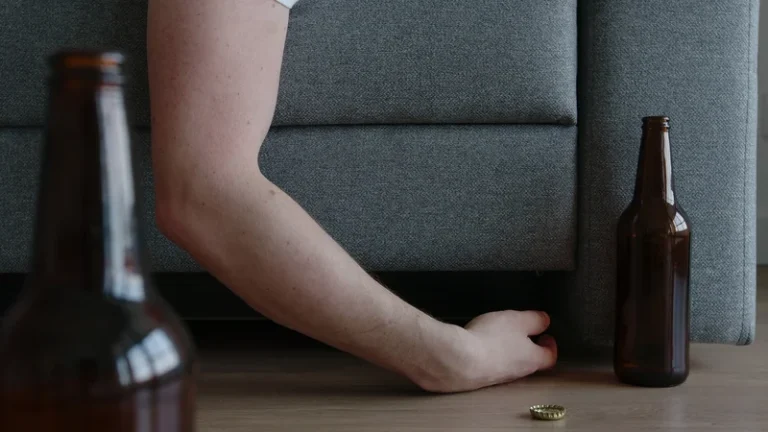
Clinical trials are research studies that look at new ways to prevent, detect, or treat diseases and conditions. The goal of clinical trials is to determine if a new test or treatment works and is safe. Cognition and mood symptoms can begin or worsen after the traumatic event.

The Complex Relationship Between PTSD and Memory

Despite these theories, the scientific community remains divided on the validity of repressed memories. Critics argue that the human memory is inherently malleable and susceptible to distortion, making it difficult to distinguish between genuine repressed memories and false or reconstructed memories. They point to studies demonstrating the ease with which false memories can be implanted through suggestion or leading questions, raising concerns about the reliability of recovered memories in therapeutic settings. The systems most closely linked to emotion and survival — heart, circulation, glands, brain — are called into action. If you have PTSD, this higher level of tension and arousal can become your normal state.
PTSD Headaches: Connection, Symptoms, and Treatment Options
- It’s crucial to work closely with a mental health professional to determine the most appropriate medication regimen, as individual responses can vary.
- You may feel like happiness is impossible or that no one cares for you.
- In order to prevent PTSD blackouts, you need to control the PTSD as a whole.
- It’s important to know that the anger of people with PTSD can become so intense that it feels out of control.
- Support groups, both in-person and online, can provide a sense of community and shared understanding.
Hypnosis and guided imagery techniques have also been used in attempts to recover repressed memories. These approaches aim to induce a relaxed state in which individuals may be more open to accessing unconscious memories. However, the use of hypnosis in memory recovery has been heavily criticized due to concerns about the potential for false memory creation and suggestion. Anger is also a common response to events that seem unfair or in which you have been made a victim. Research shows that anger can be especially common if you have been betrayed by others. This may be most often seen in cases of trauma that involve exploitation or violence.
- An indicator of PTSD can be when people experience depersonalization or derealization (without substance use).
- In the 1980s and 1990s, a wave of recovered memory cases swept through the United States, with individuals claiming to have recovered memories of childhood abuse during therapy.
- In this guide, we will discuss how to handle PTSD blackouts and regain control of your mind and body.
- Treatment for these conditions can help with recovery after trauma.
What type of memory does PTSD affect?
Supporters, on the other hand, maintain that repressed memories are a genuine psychological phenomenon, pointing to clinical case studies and neurobiological research to support their claims. The history of repressed memories can be traced back to the early days of psychoanalysis, with Sigmund Freud being one of the first to propose the idea that the mind could unconsciously suppress traumatic memories. Freud’s theories laid the groundwork for decades of research and clinical practice centered ptsd blackouts around the concept of repression. However, as our understanding of memory and trauma has evolved, so too has the controversy surrounding repressed memories. Repressed memories, in essence, refer to the psychological mechanism by which traumatic or distressing experiences are unconsciously pushed out of conscious awareness. This concept suggests that the mind, in an attempt to protect itself from overwhelming emotional pain, may bury certain memories deep within the recesses of the unconscious.

About the Acting NIMH Director
Everyone has thoughts or beliefs that help them understand and make sense of their surroundings. After trauma, a person with PTSD may think or believe that threat is all around, even when this is not true. This can be the loss of a loved one to death or divorce, the loss of a job, the loss of…
Research shows that psychotherapy, also known as a talk therapy, may be an effective treatment option for PTSD. If you’re experiencing any of these, consider reaching out to your healthcare professional, if available. When the danger passes, many people can move on and “shake it off,” so to speak.
- Hypnosis and guided imagery techniques have also been used in attempts to recover repressed memories.
- Being aware of potential signs of intoxication can also be helpful in understanding your limitations.
- Educating loved ones and the broader community about the nature of PTSD blackouts can help reduce stigma and improve support systems for those affected.
- Often the best response to extreme threat is to act aggressively to protect yourself.
The best way to improve your sleep depends on your specific sleep issue. Cognitive behavioral therapy for insomnia (CBTI) is recommended as a first-line treatment for chronic insomnia. Another helpful exercise for insomnia is to relax your muscles one by one, working your way down your body.
Risk factors
These memories, though seemingly forgotten, are believed to continue exerting influence on an individual’s thoughts, emotions, and behaviors. There are many ways to help people with PTSD deal with the high levels of anger they may feel. Many people have all three of the anger problem areas listed above.
Seek Treatment

The NIMH Strategic Plan for Research is a broad roadmap for the Institute’s research priorities over the next five years. Learn more about NIMH’s commitment to accelerating the pace of scientific progress and transforming mental health care. Flashbacks and dissociation can be incredibly disruptive and unpredictable. This is particularly true when people are not aware of their triggers.
More research is needed to understand what causes some people to develop PTSD. Dissociation-a common feature of posttraumatic stress disorder (PTSD)-involves disruptions in the usually integrated functions of consciousness, memory, identity, and perception of the self and the environment. Trauma-related nervous system effects are amplified in complex https://ecosoberhouse.com/ post-traumatic stress disorder (CPTSD). Blackouts involve complete memory loss caused by your brain’s inability to record new memories for a period of time due to the effects of excessive alcohol, substance misuse or some other condition. Researchers at NIMH and around the country conduct many studies with patients and healthy volunteers.

Comment (0)